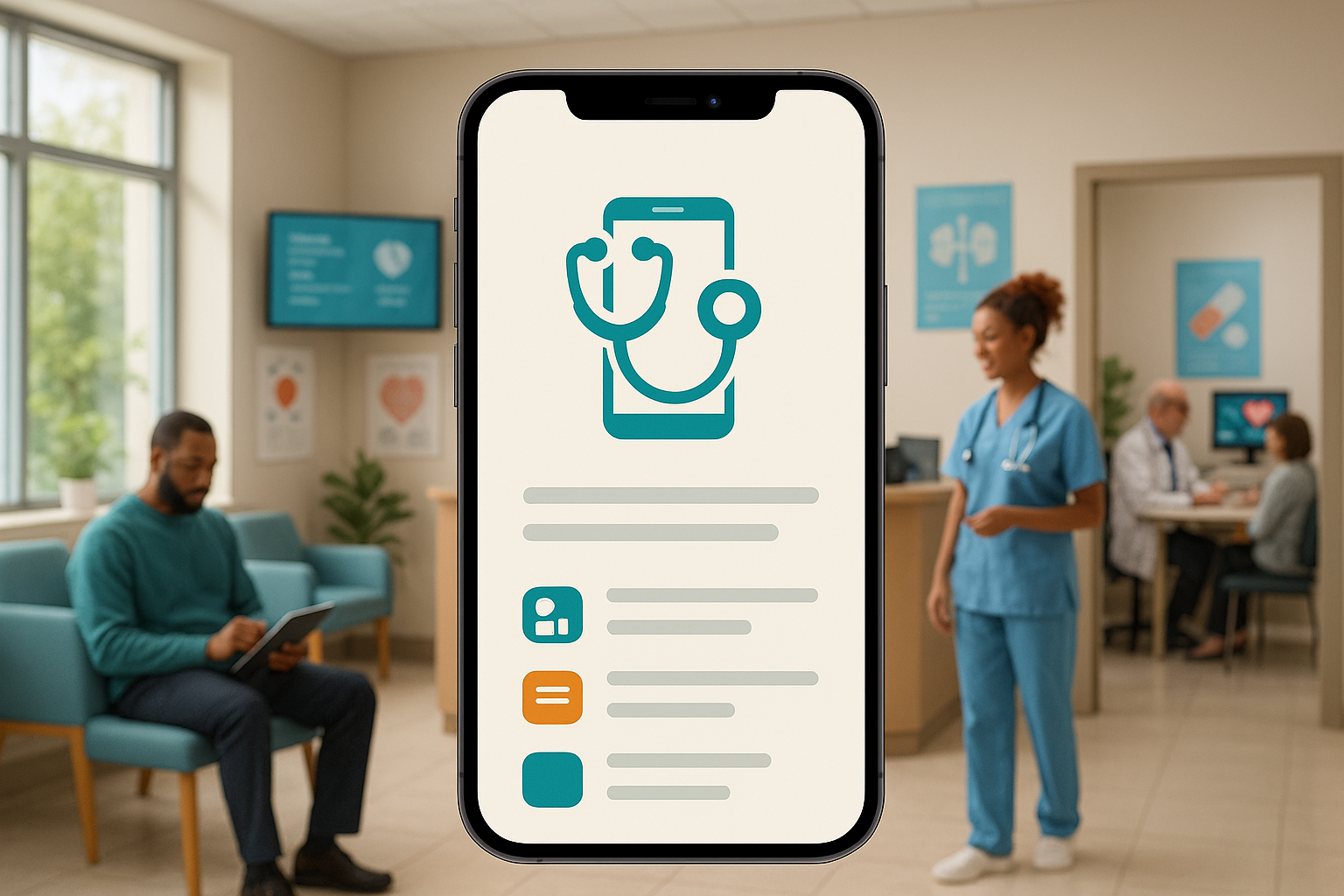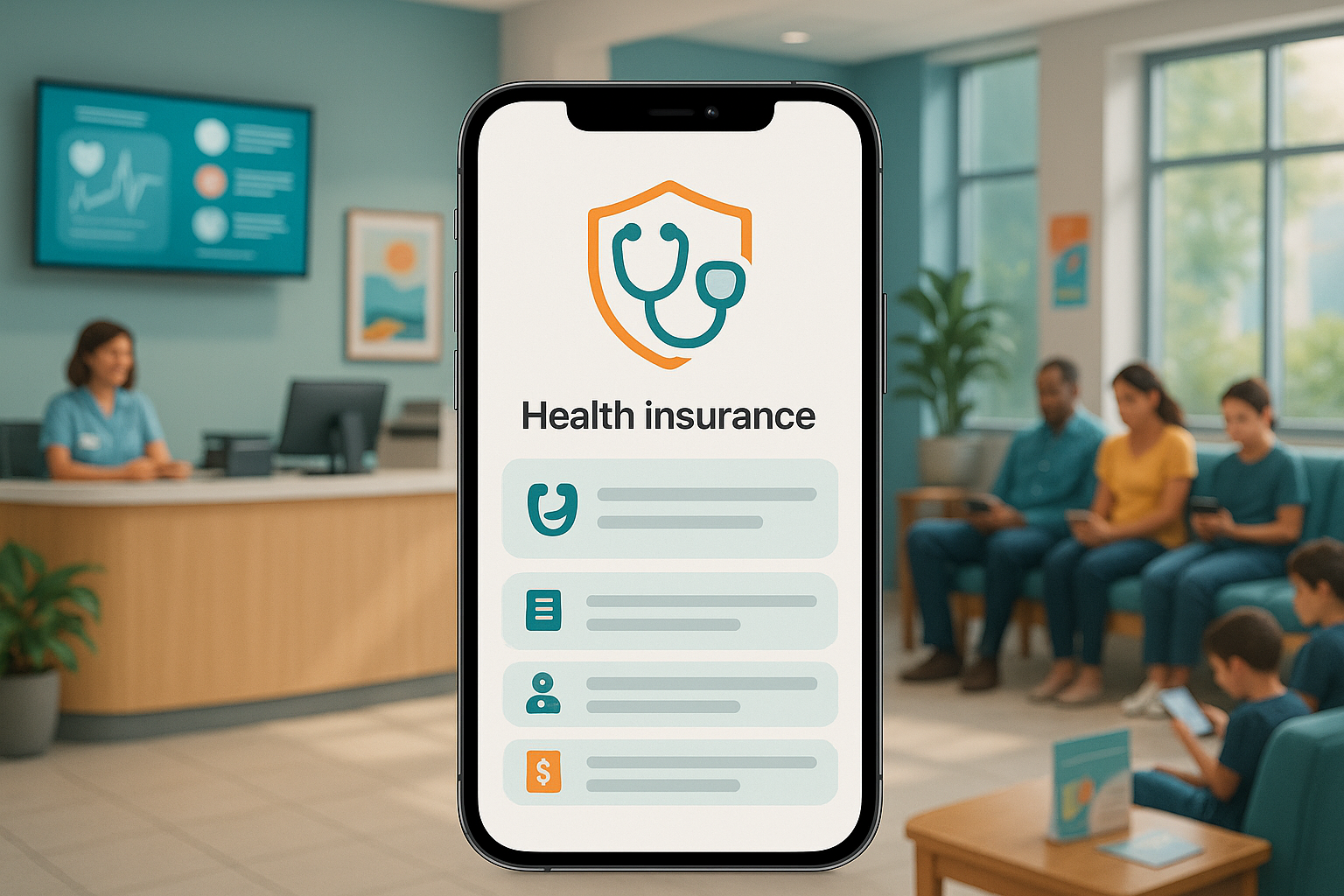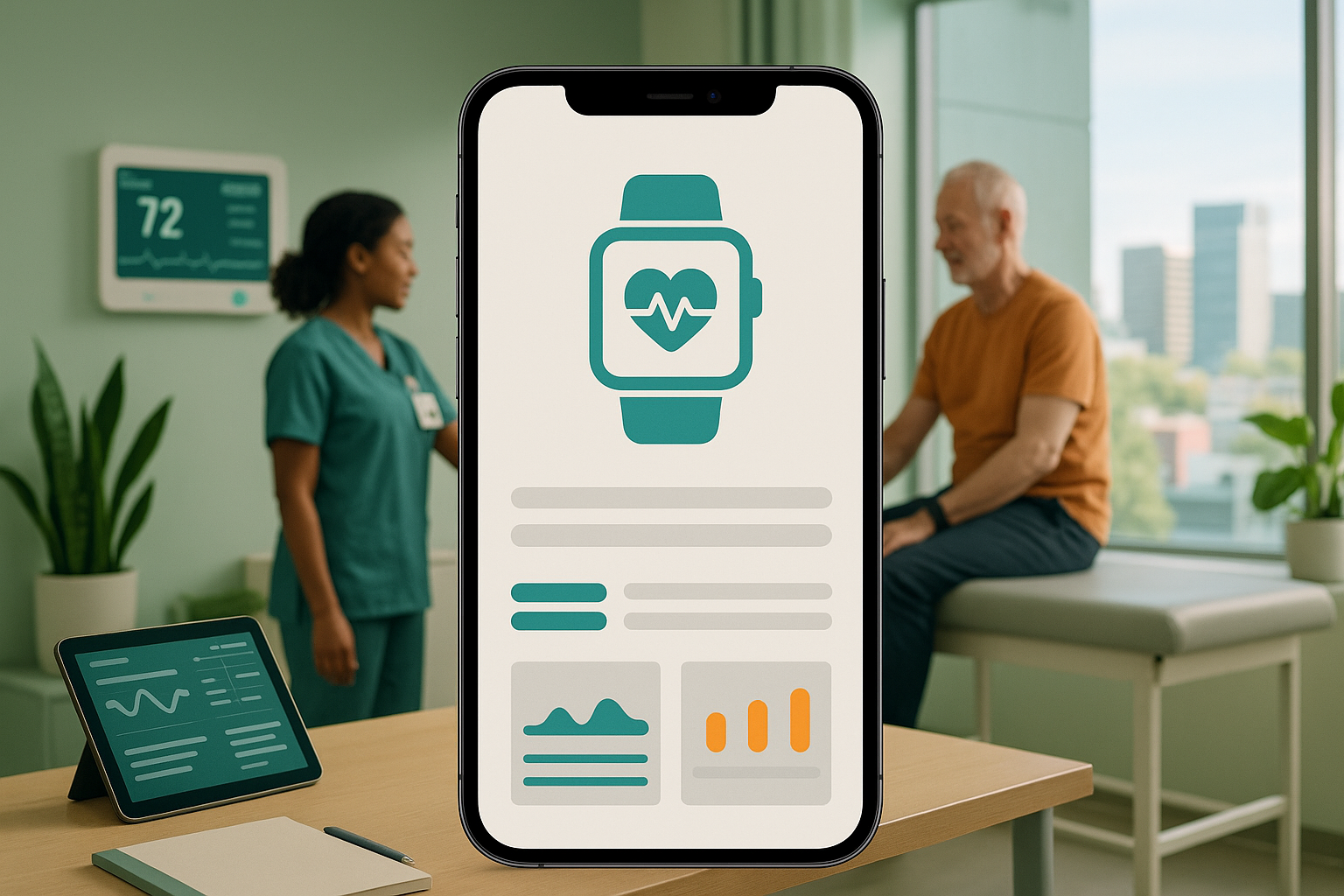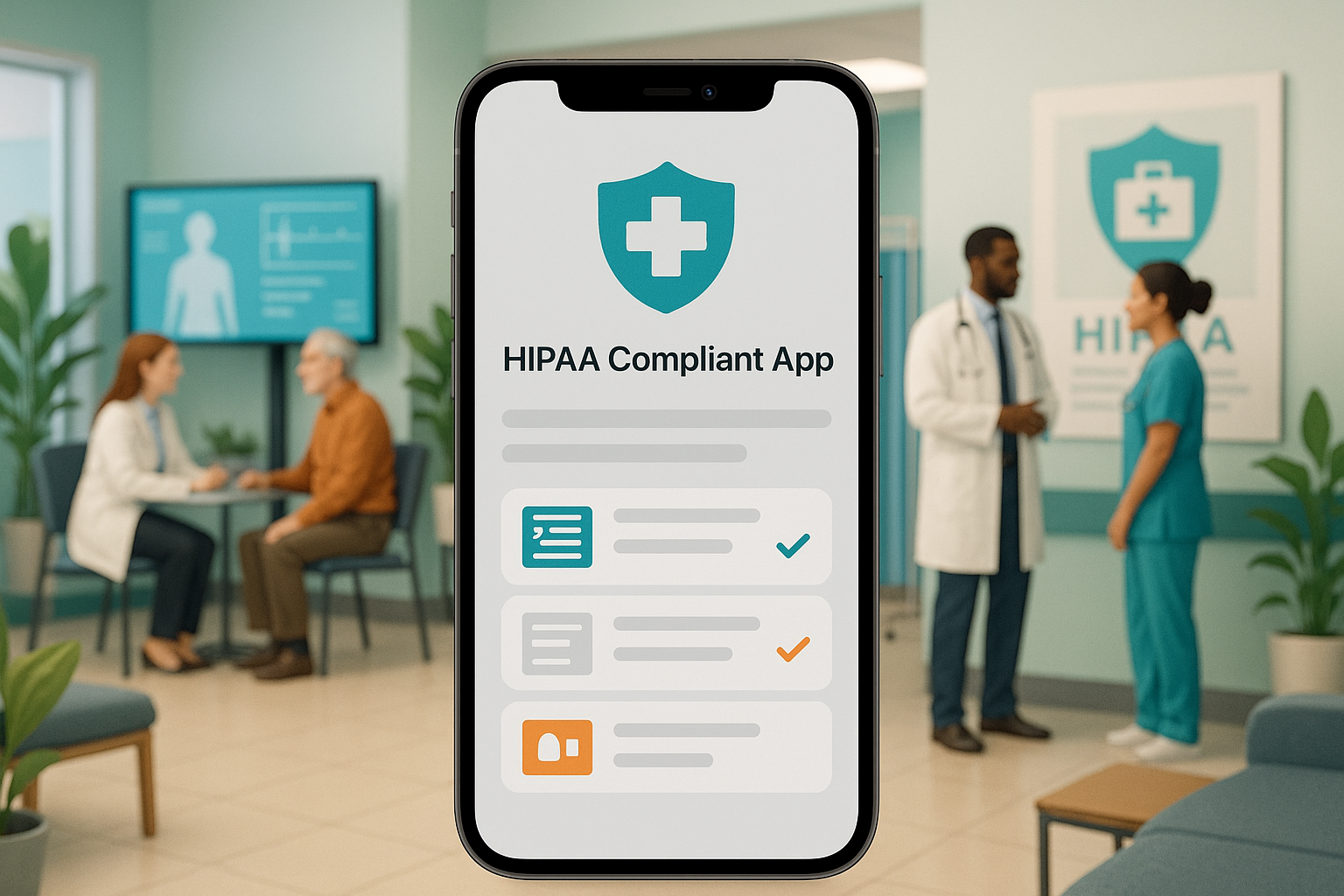The Challenge and Promise of Healthcare App Development
Developing a mobile application in any sector is a significant undertaking, but in the healthcare industry, the complexity reaches another level. The path is layered with stringent regulations, immense data security requirements, and the profound responsibility of impacting user health and well-being. Building a healthcare app is not merely about writing code; it’s about engineering a secure, reliable, and compliant digital tool that can genuinely improve patient outcomes and streamline clinical workflows. Many organizations underestimate the financial, technical, and human resources required, leading to costly setbacks or failed projects.
This article serves as a comprehensive guide to navigating the intricate world of healthcare app development. We will delve into the core definition of a healthcare app, explore the formidable challenges of building one in-house, and survey the vast landscape of application types available. Furthermore, we will provide a realistic breakdown of development costs and identify leading companies that can transform your vision into a market-ready product.
As a top US AI-powered app development firm with over 20 years of experience, we at MetaCTO have guided countless partners through this exact journey. We understand that integrating sophisticated healthcare functionality requires more than just technical skill; it demands deep industry knowledge, a rigorous approach to security, and a strategic vision. We specialize in transforming ambitious ideas into successful, scalable, and compliant mobile applications, and this guide will illuminate the path to achieving that goal.
What is a Healthcare App?
At its core, a healthcare app is a software application designed for mobile devices that serves a health-related purpose. This broad definition encompasses a diverse ecosystem of tools designed to support patients, healthcare professionals, and medical institutions. The ultimate goal of these applications is to improve health outcomes, increase the efficiency of care delivery, enhance patient-provider communication, and empower individuals to take a more active role in managing their health.
These applications function across a wide spectrum. For healthcare professionals, apps can be indispensable tools for managing information and time, maintaining and accessing health records, facilitating secure communications and consultations, and gathering reference information. They serve as platforms for patient management, clinical decision-making, and continuing medical education.
For patients and the general public, healthcare apps can be tools for the prevention and management of chronic conditions like diabetes or heart disease, platforms for patient care management and compliance, and resources that support caregivers. They foster better communication between patients and their physicians, enabling users to view information and schedule appointments with participating doctors. In essence, healthcare apps are the digital bridge connecting modern technology with the timeless pursuit of health and wellness.
Why In-House Healthcare App Development is Difficult
Attempting to develop a sophisticated healthcare application with an in-house team presents a unique and often underestimated set of challenges. While the desire for direct control is understandable, the practical realities can quickly overwhelm even well-resourced organizations. The difficulties extend far beyond simply hiring developers; they permeate every aspect of the project, from staffing and infrastructure to finance and regulatory adherence.
The Team and Expertise Gap
The first major hurdle is assembling the right team. In-house healthcare app development requires a large, specialized in-house team that goes beyond standard mobile developers. You need front-end and back-end engineers, UI/UX designers with experience in creating intuitive clinical interfaces, quality assurance testers who understand medical workflows, and a project manager adept at navigating the complexities of health tech.
Hiring such skilled engineers is not only difficult but also quite costly. The estimated annual wage for a single app developer in the United States is approximately $143,000, and ramping up an entire team can quickly become prohibitively expensive. Furthermore, these individuals must not only be experts in their respective technical domains but also possess a deep understanding of the healthcare industry and its regulatory landscape. Finding talent that checks all these boxes is a monumental task.
The Burden of Infrastructure and Capital Expenses
Beyond personnel, in-house development necessitates significant investment in infrastructure. This isn’t just about servers and databases; it includes creating and maintaining development, testing, and production environments that are secure and scalable. These efforts translate directly into substantial capital IT expenses and fixed costs that strain budgets before a single line of code is written.
This infrastructure must also be designed from the ground up to be HIPAA compliant, a non-trivial requirement. This involves implementing robust technical safeguards and security measures, which adds another layer of complexity and cost to the initial setup and ongoing maintenance.
The Overwhelming Weight of HIPAA Compliance
Perhaps the most daunting challenge is ensuring unwavering adherence to the Health Insurance Portability and Accountability Act (HIPAA). When software is used to create, maintain, store, or transmit protected health information (ePHI), it must be HIPAA compliant. This is not a one-time checklist but an ongoing organizational commitment.
An in-house team must implement a comprehensive and effective HIPAA compliance program, which includes:
- Conducting regular security risk assessments to identify vulnerabilities.
- Developing remediation plans to address any identified risks.
- Establishing and enforcing a library of policies and procedures governing the handling of ePHI.
- Providing mandatory, ongoing HIPAA training for every employee involved in the project.
- Implementing a robust incident management process to respond to potential breaches.
From a software development perspective, the application itself must be engineered with specific technical safeguards. These are not optional features; they are legal requirements.
| HIPAA Requirement | Required Software Capabilities |
|---|---|
| Access Controls | Implement unique user logins, role-based access, automatic logoff, and emergency access procedures. |
| Authentication | Implement multi-factor authentication and procedures to verify that a person accessing ePHI is who they claim to be. |
| Audit Controls | Implement mechanisms to record and examine all activity and data access within the system. |
| Encryption | Implement end-to-end encryption for ePHI at rest and in transit. |
| Transmission Security | Implement technical measures like SSL/TLS certificates to guard against unauthorized access during transmission over a network. |
| Data Backup | Implement procedures for creating and maintaining retrievable, exact copies of ePHI, preferably through offsite backup. |
Building a team and infrastructure capable of meeting these rigorous standards from scratch is a massive undertaking. Outsourcing healthcare software development to a specialized agency like MetaCTO helps lower these costs and mitigate the risks. An experienced partner arrives with a pre-existing, compliant infrastructure, a team already trained in HIPAA, and established procedures for secure development, allowing you to focus on your product’s vision rather than the complexities of its foundation.
The Diverse Landscape of Healthcare Apps
The world of healthcare mobile apps is not monolithic. It is a rich and varied ecosystem with applications tailored to nearly every imaginable need within the health sector. Understanding these different categories is crucial for identifying market opportunities and defining the scope of a new product. We can broadly classify them based on their primary users and functions.
Apps for Healthcare Professionals
This category is focused on making the lives of clinicians, nurses, and other healthcare providers more efficient and effective. These tools are designed to integrate seamlessly into clinical workflows.
- Information and Time Management: These apps help professionals organize their demanding schedules. They include applications for writing or dictating notes, recording audio, taking photographs, and organizing information. They also encompass time management tools for scheduling appointments, meetings, and call schedules.
- Health Record Maintenance & Access: A critical segment involves apps that aid in data collection and retrieval for electronic health records (EHRs) and electronic medical records (EMRs). This includes specialized hospital information systems that allow professionals to manage EHRs and Picture Archiving and Communication Systems (PACSs), as well as apps for the remote viewing of medical imaging scans.
- Communication and Consulting: Secure clinical communication is paramount. This subcategory includes social networking apps designed for healthcare professionals, as well as secure chatting apps that allow for text messaging and image exchange during consultations.
- Reference and Information Gathering: Professionals need instant access to a vast body of knowledge. This includes drug reference guides, medical textbook apps, apps displaying clinical guidelines, and medical journal apps. Literature search portals and search applications that facilitate queries of medical databases are also essential tools.
- Patient Management and Monitoring: These apps assist with tracking and monitoring patients, both in and out of the hospital. Examples include relational database programs to track hospitalized patients, apps to remotely monitor patients with chronic diseases, and even patient tracking apps for those with conditions like early Alzheimer’s disease.
- Clinical Decision-Making: These powerful tools assist professionals at the point of care. They range from diagnostic flowchart apps and evidence-based software to full-fledged Clinical Decision Support Systems (CDSS) that may incorporate artificial intelligence. Medical calculator apps that determine risk scores, BMI, or proper drug doses fall into this category.
- Medical Education and Training: The learning never stops in healthcare. This includes apps for healthcare students to log experiences and access information, knowledge assessment tests, board examination preparation apps, and apps for practicing professionals to engage in continuing medical education (CME). Advanced tools even include mobile apps that simulate surgical procedures.
Apps for Patients and Consumers
This category empowers individuals to manage their health, communicate with providers, and access care.
- Chronic Condition Management: A rapidly growing area includes apps for the prevention and management of chronic health conditions such as diabetes, obesity, and heart disease. They help with tracking symptoms, medication adherence, and lifestyle changes.
- Patient Care and Communication: These apps are designed to improve the patient experience. They can support caregivers, promote better communication among patients and physicians, and allow patients to view information about and make appointments with doctors.
- Personal Health Monitoring: These apps often connect with wearables and other devices to help users track their health. This includes apps that accurately track heart rate and heart-rate variability, as well as apps that can conduct simple medical exams, such as hearing or vision tests.
- Diagnostic and Self-Assessment: Some apps provide users with tools for preliminary health assessments. This can include mobile apps to conduct simple examinations for visual acuity, color blindness, blood pressure, or glucose levels. Others might provide information on diagnosis and treatment or help determine pregnancy due dates.
The sheer variety of these applications demonstrates the vast potential for innovation in the health tech space. From highly specialized clinical software for diagnosing diseases to patient-facing apps that promote wellness, the opportunities are boundless.
A Realistic Look at Healthcare App Development Costs
Developing a healthcare app is a significant financial investment, and understanding the associated costs is critical for successful planning and execution. The price tag can be hefty, with a typical range falling between $70,000 and $500,000. However, every healthcare application presents unique challenges and opportunities, and this range can fluctuate dramatically based on a number of key factors.
Key Drivers of Development Costs
The total cost of transforming an idea from code to a clinical tool is decided mainly by the number and complexity of its features.
- Features and Complexity: The core driver of cost is functionality. A simple informational app will be far less expensive than a complex platform with advanced features. Features such as telemedicine, remote patient monitoring, and AI-driven diagnostics require specialized skills and more resources, significantly increasing development costs. Integrating with Internet of Things (IoT) devices also raises costs due to the additional development and testing needed to ensure seamless integration and data alignment.
- UI/UX Design: A user-friendly and intuitive interface is non-negotiable in healthcare. The cost of UI/UX design services can vary depending on the design’s complexity, the total number of screens, the need for customization, and the extent of market research and user testing required.
- Platform Choice: Creating an app for a single platform, like iOS or Android, is generally more budget-friendly. Developing a cross-platform application that works on both requires more time and resources, thus increasing the cost.
- The Development Team: The staffing model you choose has a direct impact on the budget.
- In-House Team: This model comes with high upfront and ongoing costs, including salaries (with a US app developer earning around $143,000 annually), benefits, and office space.
- Freelancers: Opting for various freelancers may appear cheaper initially but comes with significant risks related to coordination, communication, and quality control.
- Outsourcing: Partnering with a reputable technology vendor, like MetaCTO, can effectively cut down development costs by providing access to a skilled, experienced team without the overhead of in-house employment. Our location, expertise, and experience allow us to provide superior value.
- Regulatory Compliance: The cost of ensuring HIPAA compliance is substantial. This includes potential certification fees from regulatory bodies and the expenses associated with meeting all legal obligations. Developers must be willing to sign a Business Associate Agreement (BAA), and they often have charges for the work required to guarantee and maintain compliance.
The Hidden Cost: Ongoing Maintenance
The budget for a healthcare app does not end at launch. Ongoing maintenance costs are significant and run high, with annual costs typically ranging from 15% to 25% of the initial development cost. This is a crucial line item that must be budgeted for from the outset.
These maintenance costs cover:
- Regular updates for security patches and bug fixes.
- Ensuring compatibility with new devices and operating system versions.
- Regulatory compliance updates as standards evolve.
- User support and helpdesk services.
- Ongoing performance optimizations to keep the app running smoothly.
Budgeting for this continuous cycle of development and maintenance is absolutely necessary to ensure the app remains secure, functional, and valuable long after its initial release. An experienced partner can help you build a Rapid MVP to validate your idea and plan a realistic long-term budget.
Top Healthcare App Development Companies
Choosing the right development partner is arguably the most critical decision you will make. The right company brings not only technical expertise but also strategic guidance, industry knowledge, and a proven track record.
1. MetaCTO
As a leading AI-enabled mobile app development firm, we at MetaCTO are uniquely positioned to handle the immense complexities of the healthcare sector. With 20 years of experience, over 120 successful projects launched, and a 5-star rating on Clutch, our track record speaks for itself. We don’t just build apps; we build businesses, having provided over $40M in fundraising support for our partners.
Integrating healthcare features into a mobile app is hard because it requires a mastery of data security, regulatory compliance (HIPAA), and complex clinical workflows. Hiring an expert development agency like us mitigates these challenges. We handle every step of the process—from strategy and design to a compliant build, launch, and growth. Our expertise in AI Development allows us to implement cutting-edge features like AI-driven diagnostics or personalized patient coaching, turning your app into a powerful, intelligent tool.
Our process is designed for speed, efficiency, and success:
- Validate: We can turn your idea into a market-ready MVP in just 90 days, allowing you to test the waters, gather user feedback, and secure funding on a tight timeline.
- Build: We handle the entire custom mobile app development process, ensuring your app is robust, scalable, and delivers a seamless user experience.
- Grow & Monetize: Post-launch, we help you acquire and retain users, using analytics to optimize engagement and implementing effective monetization strategies to turn your app into a profitable venture.
- Evolve: As your business scales, we ensure your app evolves with it, upgrading your technology to stay competitive.
Our clients, from the #1 mindfulness app for parents, Mamazen, to the AI-powered dating CRM, Bond, trust us to turn their ambitious visions into reality.
2. Fusion Informatics Limited
Recognized for their contributions to the field, Fusion Informatics Limited was named as one of the Game-Changing Healthcare App Development Companies on Clutch’s platform. This award, made a reality by Clutch, highlights their position as a capable developer in the healthcare space.
Your Partner in Healthcare Innovation
Throughout this guide, we have explored the multifaceted world of healthcare app development. We’ve defined what these powerful tools are, detailed the significant hurdles of attempting development in-house, and surveyed the vast and diverse types of applications transforming the industry. We also provided a transparent look at the substantial costs involved, from initial build to crucial ongoing maintenance, and highlighted the importance of selecting an expert development partner.
The journey to creating a successful healthcare app is complex, but it is a journey worth taking. The potential to improve lives, streamline care, and innovate within one of the world’s most vital sectors is immense. However, you do not have to navigate this path alone. Partnering with an experienced, compliant, and strategic team is the key to mitigating risk and maximizing your chances of success.
If you’re ready to build a secure, scalable, and impactful healthcare product, our team is here to help. Talk with an expert at MetaCTO today to discuss how we can integrate cutting-edge healthcare solutions into your application and bring your vision to life.






